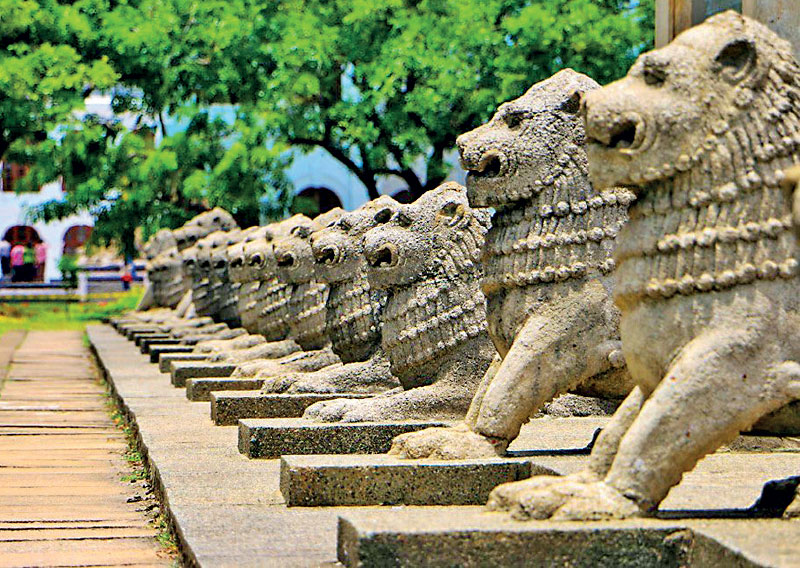Saturday Feb 21, 2026
Saturday Feb 21, 2026
Monday, 15 September 2025 00:50 - - {{hitsCtrl.values.hits}}

 In considering the repeal of the Presidents’ Entitlements Act, the nation must weigh the difference between cutting extravagance and eroding respect. Historical judgment is unforgiving, and societies are often remembered not just for their policies but for their treatment of those who served them at great personal cost. Stripping entitlements retroactively, however well-intentioned, risks leaving a record of pettiness rather than prudence
In considering the repeal of the Presidents’ Entitlements Act, the nation must weigh the difference between cutting extravagance and eroding respect. Historical judgment is unforgiving, and societies are often remembered not just for their policies but for their treatment of those who served them at great personal cost. Stripping entitlements retroactively, however well-intentioned, risks leaving a record of pettiness rather than prudence
 In recent months, the repeal of Sri Lanka’s Presidents’ Entitlements Act has sparked intense debate across political and social circles. At first glance, the move seems a demonstration of fiscal prudence—a government taking decisive steps to curb what many perceive as excessive privileges.
In recent months, the repeal of Sri Lanka’s Presidents’ Entitlements Act has sparked intense debate across political and social circles. At first glance, the move seems a demonstration of fiscal prudence—a government taking decisive steps to curb what many perceive as excessive privileges.
Yet beneath the surface lies a more profound question: are we genuinely reforming for the public good, or are we punishing individuals who have already carried the weight of the nation on their shoulders? Unlike many other South Asian countries, even in its most challenging moments, Sri Lanka has maintained a functioning democracy, ensuring smooth transitions of power within the framework of democratic justice.
Striking a balance between responsible governance and respect for former leaders is both a moral and historical imperative. How a nation treats those who have served at its highest office reflects its values: are we honouring service while promoting reform, or succumbing to retrospective vindictiveness?
Immense personal sacrifices
The presidency in Sri Lanka has never been a ceremonial role. It demands immense personal sacrifices, often placing individuals and their families in peril. Consider Chandrika Bandaranaike Kumaratunga, who assumed the presidency amid political instability and personal tragedy. Her husband, Vijaya Kumaratunga, a popular actor and politician, had been assassinated years earlier, and Chandrika herself endured grievous personal injuries, including the loss of an eye during a brutal assassination attempt. Her tenure was marked not by indulgence but by resilience under threat, navigating both political turbulence and life-threatening attacks.
President Ranasinghe Premadasa’s story is equally poignant. He was assassinated while serving in office, leaving behind a grieving widow, Hema Premadasa, who has lived under the shadow of loss while the nation grappled with the implications of political violence. His life and death underscore the extraordinary risks inherent to Sri Lanka’s highest office. President Ranil Wickremesinghe, too, faced the hazards of leadership in extreme circumstances, including attacks on his residence and threats to personal safety, yet he remained at the helm to stabilise a nation in crisis.
Even Mahinda Rajapaksa’s presidency demonstrates the often-unseen pressures of executive office. Despite international criticism and diplomatic isolation, he pursued the conclusion of a decades-long civil war, prioritising national unity over personal or political convenience. These examples reveal that the presidency entails more than privilege; it carries scars, exposure, and an unrelenting burden of responsibility. To ignore these realities while stripping away post-service entitlements risks reducing a complex role to a transactional ledger of costs and benefits.
Sri Lanka’s history is, unfortunately, rife with the consequences of political violence, further emphasising the stakes of leadership. During the JVP insurgency of the late 1980s, widespread unrest led to the destruction of public property, the loss of civilian lives, and profound psychological trauma across the island.
Not just to govern
The presidency and the broader government apparatus were called upon not just to govern but to restore order and protect citizens amid chaos. The human and social costs of such periods were immense, and the office of the president carried the ultimate responsibility.
Even in the aftermath of insurgency, the state has recognised its duty to protect families touched by violence. Rohana Wijeweera’s widow, for instance, has been afforded security and support under military protection, despite her husband’s role as a rebel leader. If the families of insurgents merit protection, surely the families of former presidents, who risked life and limb in service to the nation, deserve at least equivalent dignity. This is not an argument for extravagance but for equitable recognition of service and sacrifice. Reforms to limit entitlements can be legitimate, especially if the intent is to ensure financial prudence or streamline state resources.
Modern governance demands accountability, and it is appropriate to reassess policies to reflect changing economic circumstances. Yet there is a crucial distinction between reforming systems going forward and retroactively penalising those who served under previous agreements. Applying new rules to former leaders who accepted office under a different social contract risks appearing vindictive, undermining the integrity of the reform itself. Justice and fairness are central to good governance; without them, even the most well-intentioned legislation can feel punitive.
International norms
Looking beyond Sri Lanka, international norms provide instructive comparisons. In the United States, former presidents receive pensions, security through the Secret Service, and access to medical care and other essential resources. These provisions are neither extravagant nor excessive; they recognise the ongoing responsibilities and vulnerabilities inherent to former leaders. In India, former presidents are accorded housing, transport, medical care, and security, ensuring that they continue to live with dignity while refraining from active politics.
France and the United Kingdom similarly maintain systems that balance respect for service with fiscal responsibility. Even smaller nations with modest budgets provide a minimum “dignity package,” understanding that the symbolic value of the presidency extends far beyond material wealth.
Sri Lanka’s record is particularly remarkable in a South Asian context. While neighbouring countries have sometimes experienced coups, authoritarian consolidations, or contested successions, Sri Lanka has managed to maintain democratic continuity and orderly transitions of power, even amid civil unrest and political crises. This resilience underscores why the treatment of former presidents is not merely symbolic; it is a testament to a nation’s commitment to democratic stability. Honouring leaders who upheld democracy under pressure reinforces the principles that have allowed the country to navigate crises without abandoning constitutional norms.
To dishonour former leaders
This debate ultimately revolves around values as much as economics. Sri Lanka’s cultural ethos emphasises hospitality, empathy, and gratitude. In this context, the presidency is not merely an office; it is a national symbol. To dishonour former leaders is to dishonour the very institution they served and, by extension, the nation itself.
There is a path forward that preserves both fiscal responsibility and human dignity: a modest, transparent “basic dignity package” that provides former presidents with essential resources without indulging excess.
Such a package might include a secure, functional residence, a reasonable pension, protection for themselves and surviving spouses, and basic allowances for travel and health. These measures acknowledge sacrifice and responsibility while aligning with modern governance principles.
In considering the repeal of the Presidents’ Entitlements Act, the nation must weigh the difference between cutting extravagance and eroding respect. Historical judgment is unforgiving, and societies are often remembered not just for their policies but for their treatment of those who served them at great personal cost. Stripping entitlements retroactively, however well-intentioned, risks leaving a record of pettiness rather than prudence.
It is possible—and indeed necessary—to honour both reform and fairness. Lawmakers could revise policies for future presidents, implementing reasonable limits and ensuring transparency, while guaranteeing that those who have already served are treated with the dignity their office and personal sacrifices deserve.
Gratitude for service need not imply indulgence
Ultimately, Sri Lanka stands at a crossroads. One path priorities short-term optics and symbolic austerity at the expense of fairness; the other upholds principles of equity, respect, and historical continuity while pursuing prudent reform. The distinction is subtle but critical. Fiscal responsibility need not come at the cost of human dignity, just as gratitude for service need not imply indulgence. By carefully calibrating entitlements for former leaders, the nation can demonstrate that it honours both its history and its future. It can send a clear signal that serving the country is an act of profound responsibility, not a liability, and that those who assume the nation’s highest office are worthy of recognition and respect.
The debate over presidential entitlements is, therefore, not a mere fiscal matter; it is a test of values, historical awareness, and civic maturity. As Sri Lanka moves forward, lawmakers, citizens, and commentators alike must ask whether the repeal represents a prudent reform or an act of retrospective punishment. By ensuring that future policies honour service without extravagance, the nation can reconcile accountability with dignity.
More importantly, it can ensure that those who have borne the burdens of leadership—through personal loss, personal risk, and unrelenting public scrutiny—are remembered not for the privileges they once enjoyed, but for the sacrifices they made in service of the nation. That, in the end, is a measure of true statesmanship.